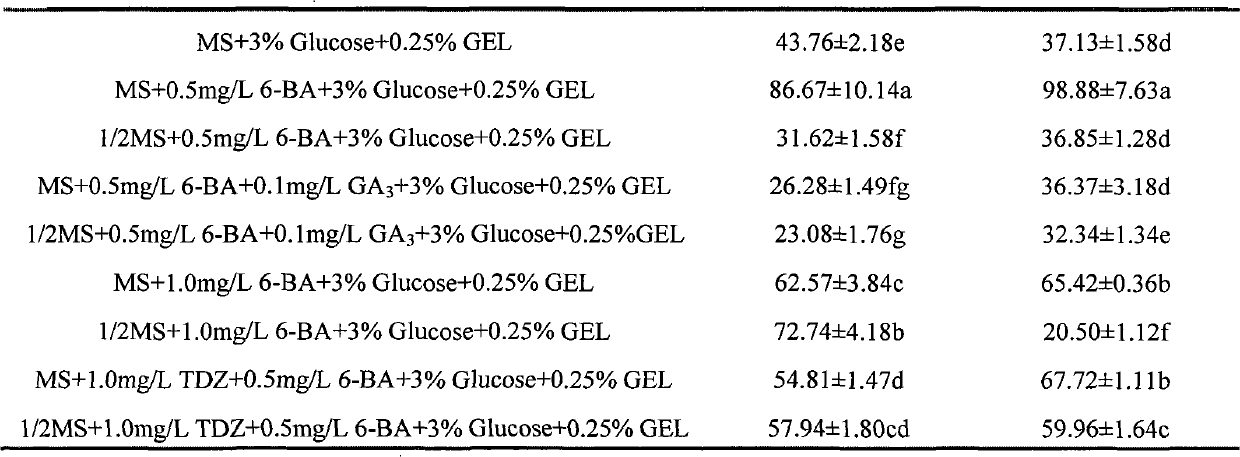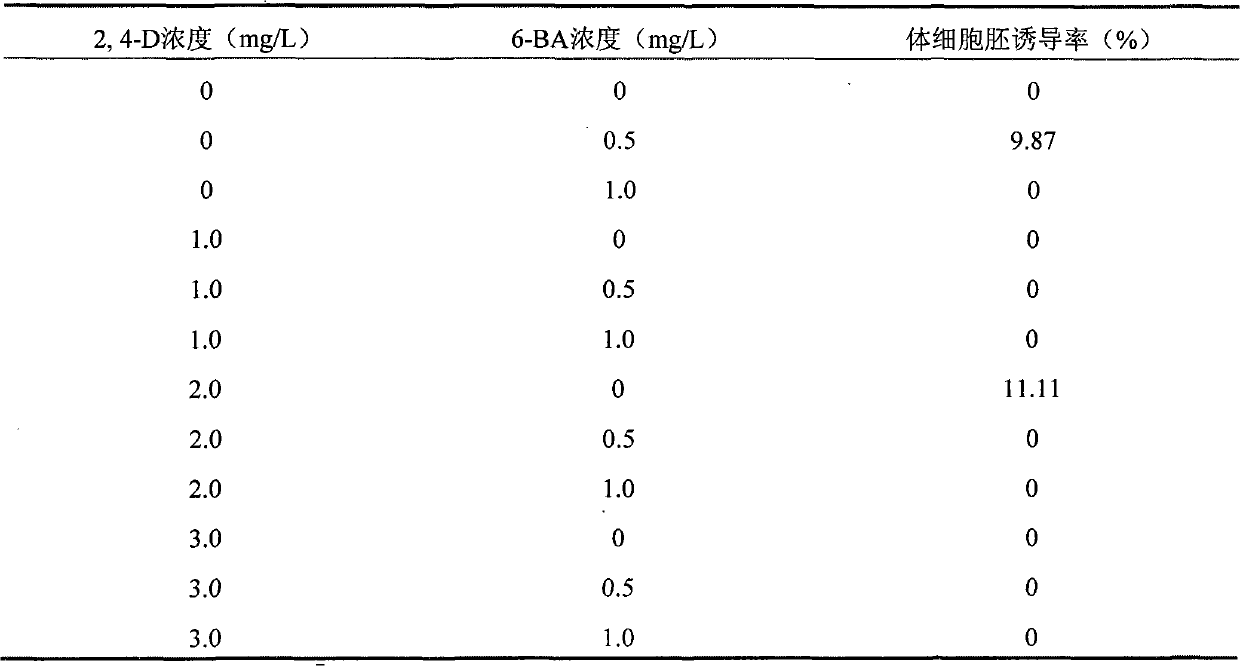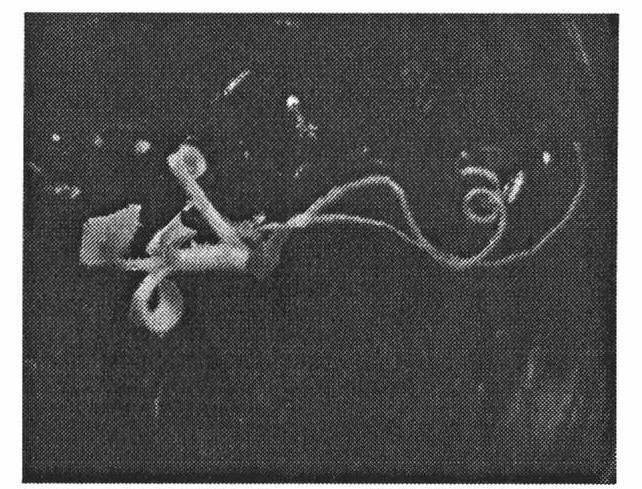Method for regenerating Chinese rose plant by using immature seed as explant
A technology for explants and roses, which is applied in the directions of plant regeneration, botanical equipment and methods, and horticultural methods to achieve good proliferation effects.
- Summary
- Abstract
- Description
- Claims
- Application Information
AI Technical Summary
Problems solved by technology
Method used
Image
Examples
Embodiment 1
[0028] Test material selection, medium design and inoculation culture
[0029] 1. The source and treatment of test materials:
[0030] The test material among the present invention is selected from and takes to grow robustly in the flower base of Huazhong Agricultural University, the excellent rose variety "Ziwu" without disease and insect pests (the original source variety is purchased from the flower nursery stock market of Hubei Academy of Agricultural Sciences, Wuchang, Wuhan City, Hubei Province. unripe fruit (8 weeks after free pollination). Fruit processing method: cut open the collected immature fruit of the Chinese rose 'Ziwu', take out the seeds inside, and select plump seeds that can sink in clear water. After rinsing with tap water for 30 minutes, put them into the mixed solution (concentrated sulfuric acid by volume: water=3:2) to soak the seeds for 30 minutes. Disinfect with 70% alcohol for 40 seconds on the ultra-clean workbench, then disinfect with 0.1% mercu...
Embodiment 2
[0045] Effects of different concentration combinations of 2, 4-D and 6-BA on somatic embryogenesis in rose 'Ziwu'
[0046] The immature zygotic embryos of rose 'Ziwu' were used as explants to induce somatic embryogenesis. When the concentration of 2,4-D was 2mg / L, the highest induction rate of 'Ziwu' somatic embryos was 11.11%. Some immature zygotic embryos that did not generate somatic embryos were browned and died, and some produced non-embryogenic callus. The experimental results are shown in Table 2:
[0047] Table 2 Effects of different concentration combinations of 2, 4-D and 6-BA on somatic embryogenesis in rose 'Ziwu'
[0048]
Embodiment 3
[0050] Effects of Different Media on Germination of Somatic Embryos and Plantlet Regeneration of Rose 'Ziwu'
[0051] The effects of different media on the germination and plant regeneration of rose 'Ziwu' somatic embryos are shown in Table 3: In the somatic embryo germination test, there were significant differences in the effects of 9 media on the germination of rose somatic embryos . On MS+0.5mg / L 6-BA+3%Glucose+0.25%GEL medium, the germination rate of 'Ziwu' somatic embryos was the highest, reaching 86.67%, and the seedling rate per unit of somatic embryos was as high as 98.88%. 6-BA did not significantly promote the germination of somatic embryos and plant regeneration of rose 'Ziwu', and the effect of 6-BA was better than that of TDZ. During the plant regeneration process of somatic embryos of rose 'Ziwu', roots and buds occur simultaneously, and a complete plant with roots and buds can be formed without rooting culture.
[0052] Table 3 Effects of different seedling g...
PUM
 Login to View More
Login to View More Abstract
Description
Claims
Application Information
 Login to View More
Login to View More - R&D
- Intellectual Property
- Life Sciences
- Materials
- Tech Scout
- Unparalleled Data Quality
- Higher Quality Content
- 60% Fewer Hallucinations
Browse by: Latest US Patents, China's latest patents, Technical Efficacy Thesaurus, Application Domain, Technology Topic, Popular Technical Reports.
© 2025 PatSnap. All rights reserved.Legal|Privacy policy|Modern Slavery Act Transparency Statement|Sitemap|About US| Contact US: help@patsnap.com



